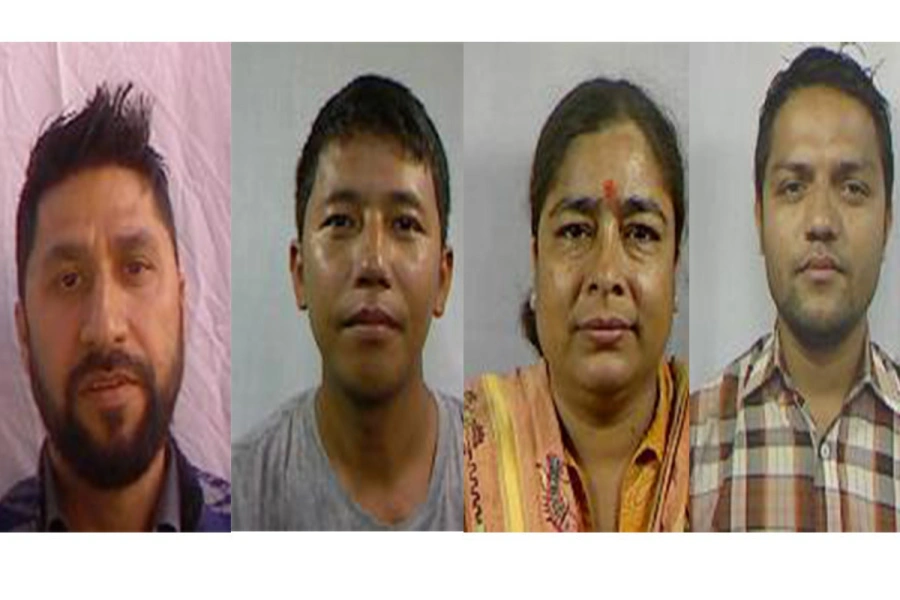The role of the Supreme Court now is to provide a fair interpretation which must protect the spirit of the current constitution.
Dissolution of the House of Representative by Prime Minister K P Sharma Oli has brought chaos in Nepali politics. Most intellectuals including lawyers and citizens have criticized PM’s move. But the Prime Minister has been defending his move by calling it an opportunity to take fresh mandate of people. The House dissolution has raised two key questions: Is it politically justified to dissolve the parliament anytime by a prime minister? Are there any constitutional grounds for a prime minster to do so? The case is now at the Constitutional Bench of the Supreme Court but to dissect these two questions some basic tenets need to be understood.
In a Westminster system, a parliament sets certain procedure for the executive and forms a cabinet. In such a system the Prime Minister is more powerful and is supposed to exercise his/her rights to dissolve the House of Representative. Prime Minister Oli is defending his move on the basis that the parliament can be dissolved at any time.
The current constitution does not allow such absolute powers to the PM. Taking into consideration the cases of dissolution of the House of Representative by many prime ministers, the drafters of the current constitution came to a consensus to add a unique feature regarding dissolution of parliament and motion of no-confidence. Previous constitutions were open to the motion of no-confidence but current constitution limits the exercise of vote of no-confidence. The constitution mentions that motion of no-confidence shall not be tabled until the first two years after the appointment of Prime Minister and until one year after the date of failure of the motion of no-confidence thus tabled. This one of the most unique features of the current constitution gave hope for a stable government in Nepal.
How to avoid puffy eyes in the morning

The current constitution does not provide any basis for the dissolution of the House by the Prime Minister. The constitution limits the power of a prime minister to recommend for the dissolution of House before the President. To recommend the dissolution there must be a situation where a prime minister appointed cannot obtain vote of confidence or the new prime minister cannot be appointed.
A prime minister appointed with the support of two or more parties can only exercise the right to recommend the dissolution. Oli was appointed PM as the leader of a party that commanded majority in the House of Representative. Such a PM must consider the alternative governments to be formed even if he/she faces a vote of no-confidence. A responsible PM should not be afraid to face the House and provide grounds for dissolution.
Eyes on the court
The legitimacy and constitutionality of the dissolution of the House of Representative is now the matter of judicial interpretation. This is the first instance where the Supreme Court is given a responsibility to interpret Article 76. The role of the Supreme Court now is to provide a fair interpretation which must protect the spirit of the current constitution.
The Supreme Court had a few opportunities to interpret the dissolution of the House prior to the enactment of the current constitution. But the precedents set before by the Supreme Court cannot be taken as the reference to interpret the current dissolution. The contexts of House dissolution by Girja Prasad Koirala in 1994, Manmohan Adhikari in 1995 and Sher Bahadur Deuba in 2002 were completely different.
Dissolution by Girija Prasad Koirala was considered constitutional because there was no possibility to form alternative government and there was no alternative other than seeking for a fresh mandate. Second, before Manmohan Adhikari dissolved the House in 1995 a no-confidence motion was already filed and the Supreme Court ruled that the chances of forming the alternative government were still alive. In case of 2002 decision, exclusive right to dissolve the House of Representative was on the crown and there was no compulsion for the Prime Minister to provide specific grounds for alternative government while recommending for dissolution.
The Supreme Court has the ultimate responsibility to safeguard the constitution. Whether the current dissolution is termed legitimate, politically correct or unconstitutional the Court has to interpret Article 76 and Article 85 in accordance with the spirit of the constitution and its norms. The Constitutional Bench must give the issue a priority and conduct a continuous hearing. The bench is expected to interpret the text of the constitution as per the original intent of the drafters. The interpretation must avoid the flagrant violation of the text of the constitution. The Court must consider that there are alternatives for a new government to be formed and that the constitutional mandate requires stable government for development and prosperity.
The spirit of the preamble of the constitution should always be considered. Even though it may be a prime minister's prerogative to dissolve the parliament the Supreme Court must not set a precedent for such dissolutions in the future. If Article 76 and 85 are not interpreted rightly it might lead to more unstable governments in the future.
This is also the right time for the Supreme Court to regain people’s trust.







































